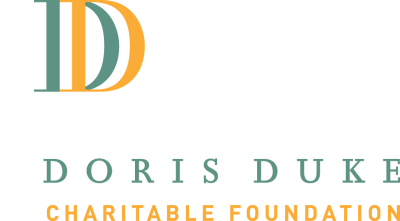STRATEGY
The Fund for National Projects supports projects that:
Strengthen the national infrastructure of the professional nonprofit dance, jazz, presenting and/or theater fields; or
Improve conditions for the national community of performing artists in professional nonprofit dance, jazz and theater.
GRANT DETAILS
The Fund will award a total of up to $1 million in grants each year to support key national projects in the professional nonprofit dance, jazz, presenting and/or theatre fields. Grants range from $60,000 to $200,000 and cannot exceed 50 percent of a project's total cost. In general, grant periods will be limited to a maximum of two years, although applicants may request longer support in extraordinary circumstances. Additional funds will be given to previous Fund for National Projects grantees in the Fund for National Projects Phase II Program.
National projects engage a broad national constituency, occur once (or periodically) rather than annually, and have the potential to significantly impact a field.
Organizations are encouraged to submit letters of inquiry for projects that strengthen the national infrastructure of the professional nonprofit dance, jazz, presenting and/or theater fields, or that improve conditions for the national community of performing artists in dance, jazz and theater, such as:
- Research projects assessing the national health of professional nonprofit arts groups or of individual professional artists;
- Special national convenings for entire professional nonprofit performing arts fields (beyond traditional national annual conferences);
- Special projects that address unique circumstances that affect an entire professional nonprofit field.
Highest priority will be given to projects that improve the health of the Arts Program's priority performing arts fields and do not duplicate ongoing efforts or existing services.
AREAS NOT FUNDED
In general, the Arts Program does not fund visual arts, museums or galleries; film or media projects; literary arts; symphonies, opera companies, classical chamber music or musical forms beyond jazz; classical ballet companies; avocational arts activities; arts programs for rehabilitative or therapeutic purposes; training and conservatory programs; or capital projects.
The Fund expressly does not support the following types of activities:
- Projects by single performing arts entities (e.g., national tours of a particular dance or theater work, even if they aspire to be a national model for others);
- Ongoing annual conferences;
- Individually produced conferences, performances or symposia (e.g., a festival produced by a single organization or by a consortia of local groups in a specific city or locale);
- Re-granting programs;
- Translations or commissions of new works (even if expected to have national impact);
- Production start-up activities/production costs;
- Arts education;
- Avocational arts activities;
- Capital projects;
- Endowments.
Grantseekers should also keep in mind the following:
- The Fund is not a national source to fund projects that are local or regional in nature or designed to strengthen a single organization. It is a fund to support national projects-projects that embrace diverse constituents from around the country and that have the potential to positively impact the national infrastructure for the dance, jazz, presenting and/or theater fields. Many of the projects that were rejected focused on single communities or regions, and projects where the potential national impact and project constituency were unclear were not invited.
- The Fund expressly does not support tours, programming and/or services at a single organization or within a smaller community or constituency, even if it purports to be a national model for others and/or draws from a national pool of artists. Tours, residencies, etc., are amply supported by DDCF through multiple regranting programs and explicitly fall outside of the purview of the Fund for National Projects.
- The Fund expressly does not fund the creation of, or the amplification of, competitions or granting programs already in existence.
- The Fund does not fund the expansion in the number of services available to a particular field. As an example: given the number of leadership development programs currently being offered in a national, regional or local context, the creation of a new leadership program needs to clearly make an argument that its approach, structure and/or impact will be substantially different than that of already existing programs. Simply increasing the number of programs available without expanding the very nature of those programs is an insufficient justification for a project to be invited to submit a full proposal.
- The Fund is designed to improve the infrastructure of the field and not to facilitate the creation of new work per se. Proposals that are centered heavily in producing festivals or commissioning new works fall outside of the intent of this initiative and were not invited to advance further.
- Proposals that over-reached, i.e., overstated the uniqueness of the project or did not recognize activities already in place to serve the same goals, were generally not invited to proceed further.
- Proposals where the value specifically to the DDCF priority fields of dance, jazz, presenting and/or theater was not clear were not invited to proceed further, even in cases where the projects might be argued to have value for "the arts" writ large.
- The Fund does not support ongoing activities, including recurring national or international conferences, of national organizations of consortia.
- Especially in this highly competitive round, stand-alone meetings that gave no indication of a longer trajectory of anticipated activity, a sense of the animating questions the meeting could resolve and/or the likely impact of the meeting on the larger field, not just on the individuals who attend the meeting, were generally not competitive and did not advance further.
- Recognizing that the Fund supports no more than 50 percent of project costs, organizations whose requests relative to their annual budgets raised real questions about the capacity of the organization to raise the balance of funds in this current economic environment were not invited to proceed further.
- With rare exception, documentation is rarely supported, unless a clear link of field building--beyond simple access to knowledge--can be established. The documentation programs that are invited generally have a specific action plan that goes beyond awareness building.
Eligibility
Single nonprofit organizations and consortia are both eligible to apply.
APPLICATION PROCESS
The deadline to submit a letter of inquiry is February 24, 2017, and letters of inquiry must be submitted online. Full proposals are due approximately six weeks after receiving an invitation to submit.
Letters of inquiry should outline the project and articulate its impact on the professional nonprofit dance, jazz, presenting or theater field. Competitive proposals that demonstrate the potential for direct and significant impact on the national professional nonprofit dance, jazz, presenting and/or theater fields are reviewed by an advisory panel, which recommends the strongest applicants for funding based on the criteria for support outlined below.
CRITERIA FOR SUPPORT
In reviewing proposals, the panel considers the following questions:
- Project Concept/Structure/Participants
- Does the project address a significant need for artists and/or organizations working in the dance, jazz, presenting and/or theater fields?
- Is the project well conceived and structured?
- Does the project reflect clear understanding of the state of the performing arts today?
- Does the project reflect sharp, refined, strategic thinking?
- Does it identify an appropriate and significant group of partners/participants? (e.g. Have participants been strategically identified? Are they the "right" group to move this project forward?)
IMPACT
Will this project have significant impact on the national dance, jazz, presenting and/or theater field?
Does the project expand the range of services, activities or body of knowledge available today?
Does the project do more than replicate existing programs and services?
CAPACITY
Does the applicant have the financial and administrative ability to execute the project successfully?
GRANT REQUEST
Does the scope of the project warrant the level of support available in this fund from DDCF ($60,000-200,000)? (Grants can cover up to 50 percent of total project costs.)

